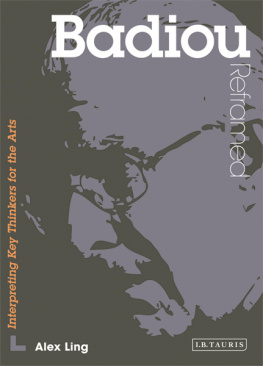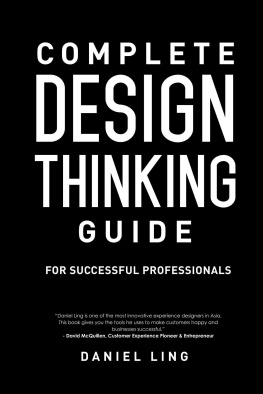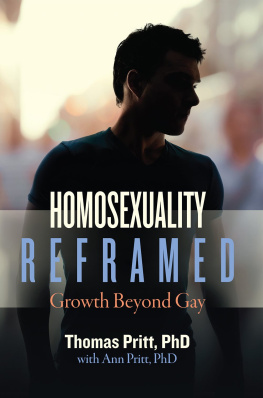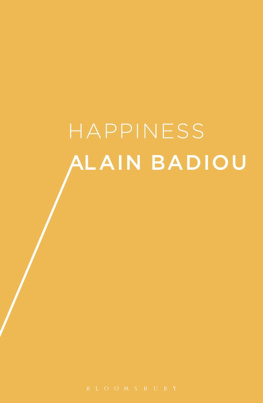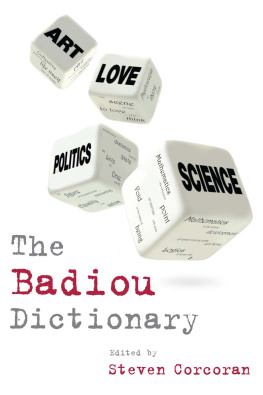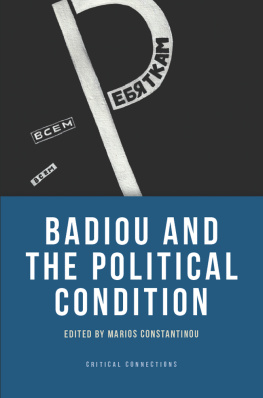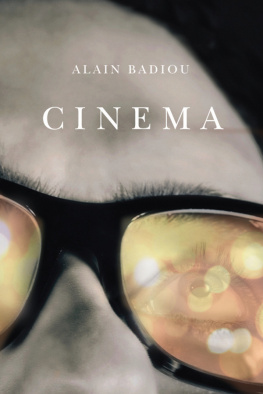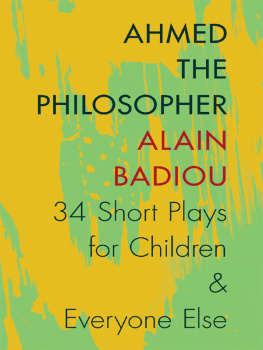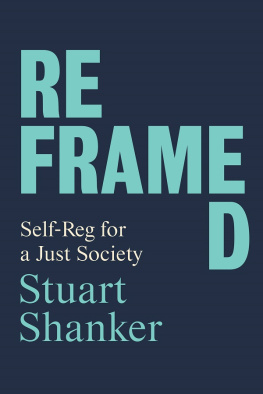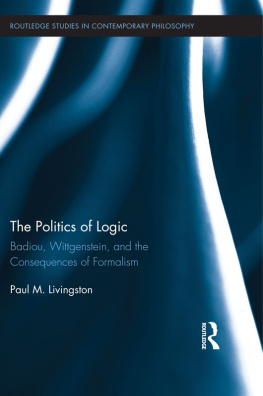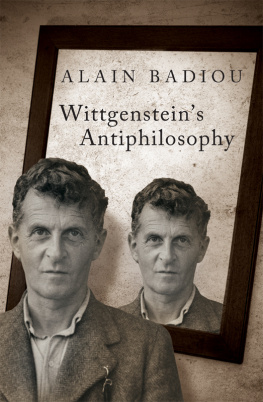Ling - Badiou Reframed
Here you can read online Ling - Badiou Reframed full text of the book (entire story) in english for free. Download pdf and epub, get meaning, cover and reviews about this ebook. year: 2016, genre: Religion. Description of the work, (preface) as well as reviews are available. Best literature library LitArk.com created for fans of good reading and offers a wide selection of genres:
Romance novel
Science fiction
Adventure
Detective
Science
History
Home and family
Prose
Art
Politics
Computer
Non-fiction
Religion
Business
Children
Humor
Choose a favorite category and find really read worthwhile books. Enjoy immersion in the world of imagination, feel the emotions of the characters or learn something new for yourself, make an fascinating discovery.
Badiou Reframed: summary, description and annotation
We offer to read an annotation, description, summary or preface (depends on what the author of the book "Badiou Reframed" wrote himself). If you haven't found the necessary information about the book — write in the comments, we will try to find it.
Ling: author's other books
Who wrote Badiou Reframed? Find out the surname, the name of the author of the book and a list of all author's works by series.
Badiou Reframed — read online for free the complete book (whole text) full work
Below is the text of the book, divided by pages. System saving the place of the last page read, allows you to conveniently read the book "Badiou Reframed" online for free, without having to search again every time where you left off. Put a bookmark, and you can go to the page where you finished reading at any time.
Font size:
Interval:
Bookmark:

Contemporary Thinkers Reframed Series
Adorno Reframed ISBN: 978 1 84885 947 0
Geoff Boucher
Badiou Reframed ISBN: 978 1 78076 260 9
Alex Ling
Bakhtin Reframed ISBN: 978 1 78076 512 9
Deborah Haynes
Baudrillard Reframed ISBN: 978 1 84511 678 1
Kim Toffoletti
Deleuze Reframed ISBN: 978 1 84511 547 0
Damian Sutton & David Martin-Jones
Derrida Reframed ISBN: 978 1 84511 546 3
K. Malcolm Richards
Guattari Reframed ISBN: 978 1 78076 233 3
Paul Elliott
Heidegger Reframed ISBN: 978 1 84511 679 8
Barbara Bolt
Kristeva Reframed ISBN: 978 1 84511 660 6
Estelle Barrett
Lacan Reframed ISBN: 978 1 84511 548 7
Steven Z. Levine
Lyotard Reframed ISBN: 978 1 84511 680 4
Graham Jones
Merleau-Ponty Reframed ISBN: 978 1 84885 799 5
Andrew Fisher

Published in 2017 by
I.B.Tauris & Co. Ltd
London New York
www.ibtauris.com
Copyright 2017 Alex Ling
The right of Alex Ling to be identified as the author of this work
has been asserted by him in accordance with the Copyright,
Designs and Patents Act 1988.
All rights reserved. Except for brief quotations in a review, this book,
or any part thereof, may not be reproduced, stored in or introduced
into a retrieval system, or transmitted, in any form or by any means,
electronic, mechanical, photocopying, recording or otherwise, without the
prior written permission of the publisher.
ISBN: 978 1 78076 260 9
eISBN: 978 1 78672 062 7
ePDF: 978 1 78673 062 6
A full CIP record for this book is available from the British Library
A full CIP record for this book is available from the Library
of Congress
Library of Congress catalog card: available
Typeset in Egyptienne F by Riverside Publishing Solutions, Salisbury
Page design by Chris Bromley
List of illustrations
Introduction
First impressions
Alain Badiou is without doubt one of the most important philosophers writing today. Perhaps only a handful of other living philosophers can be said to display as diverse a field of reference, as broad a range of influence, and as powerful an ability to intervene in contemporary debates. Still fewer can lay claim to establishing as meticulous and systematic a philosophy (let alone one that truly begins from scratch, constructing its edifice from the ground up, as it were).
Yet if Badiou is one of the most important contemporary philosophers, he is at the same time one of the most polarizing. This is at least in part a consequence of the extraordinary range and rigour of his undertaking. On the one hand, the breadth of his project alone is astounding, ranging as it does from the void of pure multiplicity through the plenitude of appearance up to the paradox of events and the subjects and truths they might engender (or again, from nothing up to everything, and then again beyond that). Yet on the other hand, the infinite wealth of his system is offset by equally stark austerity measures, Badiou unhesitatingly jettisoning everything he deems to be unimportant (if not outright harmful) not only for philosophy itself but also for thinking more generally. Indeed, polemics to one side and Badiou is certainly one of the great polemicists of our age newcomers to his thought, in particular those with a background in the creative arts, will likely find his philosophy either infinitely expansive, opening up previously unimaginable possibilities, or uncomfortably, even debilitatingly, restrictive.
To be sure, a quick skim through one of his more immediately accessible works such as Ethics: An Essay on the Understanding of Evil or Infinite Thought is likely to reveal Badiou as either an emphatically modern, and in this sense, truly revolutionary thinker, or alternatively, an anachronistic dogmatist, depending on your vantage point. Conversely, a detailed reading of his magnum opus Being and Event which remains to this day the central text of his philosophy, the work in which his system is most fully and systematically elaborated should throw up a different but no less divisive situation, this time involving the acceptance or not of his initial declaration that mathematics is ontology. Either you agree with this bold thesis, making it difficult not to go along with the meticulously drawn-out consequences that constitute the remainder of this dense but incredibly rewarding tome, or you disagree, and Badious entire philosophy is accordingly unfounded. The aim of this short book is consequently not only to provide an overview of Badious philosophical system, with the visual arts as both our inspiration and our guide, but also to explain exactly how it is that his thought elicits such conflicting reactions, and why such polemicizing is moreover an integral and indeed, essential function of thought itself.
Before we begin, however, it is worth pointing out at least one immediate reason as to why Badious philosophy provokes such extreme reactions. This can be summarized in a single word: mathematics.
It is one of the great pedagogical ironies that mathematics, that most stable and universal of languages the language that Plato, in his Meno, demonstrated could be equally comprehended by educated man and slave alike frequently serves as the greatest bulwark against the successful communication of ideas. For the very second in which mathematical concepts arise in a text, a great many non-mathematically minded readers (and I count myself among this number) will demonstrate an unfortunate tendency to tune out. Due no doubt to its perceived complexity, it is mathematics unenviable fate to be something that is, at one and the same time, inclusive and exclusive, embracing and alienating, transparent and impenetrable.
To say that mathematics is central to Badious philosophy would be a gross understatement. As such, one cannot approach his work with any degree of rigour without engaging with mathematics on some level. That said, this book has been written with the non-mathematically inclined reader foremost in mind,and every possible effort has been taken to keep the demonstrations as simple and clear as possible, detailing only those elements that are absolutely essential to a proper comprehension of Badious overall philosophy. More than this, the central conceit of the series to which this book belongs namely, that of reframing complex philosophical concepts and ideas through the visual arts requires that the mathematical abstractions be propped up not only philosophically, but moreover with concrete artistic supplements (hence Malevichs White on White accounts for the distinction between counted and uncounted multiplicity, while the paradoxical notion of a sets auto-belonging is encapsulated in Duchamps Fountain, etc).
Nonetheless, as Badiou declares, the philosopher can and must love this mathematical world where the concept is so pure and so strong that it renders intuition ridiculous, and the reader is accordingly strongly encouraged to take the time to engage with Badious mathematical foundations for they truly are, philosophically speaking, foundational as in doing this they will find the experience infinitely richer, more comprehensible, and ultimately more rewarding.
One final point before we begin. The fact that this book turns to the visual arts in order to introduce and reframe Badious work may appear to carry with it the assumption that philosophy enjoys a certain authority over the arts, or that the philosopher can educate the artist about their own work. Now, Badiou certainly has much to say about the arts. One of his central tenets, after all, is that art is not an object for philosophy, but rather one of its fundamental
Next pageFont size:
Interval:
Bookmark:
Similar books «Badiou Reframed»
Look at similar books to Badiou Reframed. We have selected literature similar in name and meaning in the hope of providing readers with more options to find new, interesting, not yet read works.
Discussion, reviews of the book Badiou Reframed and just readers' own opinions. Leave your comments, write what you think about the work, its meaning or the main characters. Specify what exactly you liked and what you didn't like, and why you think so.

